Prostate cancer is a common cancer affecting men, particularly as they age. While the exact causes remain unknown, lifestyle factors, including diet, significantly influence risk. By making informed dietary choices, men can take proactive steps to promote prostate health and potentially reduce their risk of developing this disease.

Prostate cancer is the second most commonly diagnosed cancer and the fifth leading cause of cancer death among men worldwide. It's said that every man (in the US) will have prostate cancer in the course of their lifetime, but not all men will die of prostate cancer!
Advancing age, black race, and family history are well-established risk factors for prostate cancer. However, lifestyle and dietary factors like obesity, diabetes, high doses of vitamin E, and sedentary life might increase the risk of prostate cancer.
I've had many people asking me about prostate cancer. This article delves into dietary changes and supplements that may help prevent prostate cancer.
Eating the right foods plays a crucial role in maintaining prostate health. A prostate-friendly diet includes foods rich in antioxidants and healthy fats, which help reduce inflammation.
Consuming items like tomatoes, which are high in lycopene, and fatty fish rich in omega-3s can support prostate health. On the other hand, avoiding sugar-sweetened drinks and processed foods is critical in preventing worsening prostate conditions.
Supplements and lifestyle changes can also contribute significantly to prostate wellness. For instance, many natural supplement suppliers, such as Ben's Natural Health aim to improve overall health and manage metabolic issues, supporting prostate health.
Staying active and keeping stress levels in check are other critical factors that enhance the effectiveness of dietary choices.
Key Takeaways
- What is prostate cancer?
- Antioxidant-rich foods support prostate health.
- Supplements and lifestyle changes boost dietary impacts.
- Avoiding some types of foods is essential.
What is prostate cancer?
Prostate cancer develops in the prostate gland, a small walnut-shaped gland located below the bladder. This gland plays a crucial role in the male reproductive system by producing a fluid that nourishes and transports sperm.
Prostate cancer typically progresses slowly, and many men diagnosed with it may not experience significant adverse effects or symptoms.
However, some forms can be more aggressive, spreading to nearby tissues or metastasizing to other organs. Common symptoms may include difficulties with urination, pelvic discomfort, and changes in sexual function.
Essential Foods for a Prostate-Friendly Diet
A prostate-friendly diet emphasizes antioxidant-rich fruits and vegetables, quality proteins, and whole grains to support a healthy prostate. These foods can help alleviate benign prostatic hyperplasia (BPH) symptoms and reduce inflammation.
Fruits and vegetables rich in antioxidants
Eating plenty of fruits and vegetables can provide essential nutrients like vitamin C and compounds such as sulforaphane.
- Tomatoes are particularly beneficial because they are rich in lycopene, an antioxidant linked to prostate health.
- Cruciferous vegetables like broccoli and cauliflower also offer anti-inflammatory properties while providing sulforaphane, which has anticancer properties.
- Including a variety of berries like strawberries, blueberries, and raspberries contributes to antioxidant intake like resveratrol.
- Green tea, known for its catechins, is another excellent choice for promoting a healthy prostate.

Quality proteins and healthy fats
Quality proteins and healthy fats are crucial for a balanced diet.
- Fatty fish like salmon are excellent sources of omega-3 fatty acids, which have anti-inflammatory effects.
- Skinless poultry provides lean protein without excess saturated fats.
- Nuts, particularly walnuts, offer healthy fats that can support prostate health.
- Adding olive oil instead of butter or margarine can further enhance the intake of beneficial fats.
- Beans and legumes are also excellent protein options, rich in fiber, that promote a feeling of fullness.
Whole grains and fiber-rich options
Including whole grains in the diet offers fiber that helps improve digestion and may alleviate BPH symptoms.
- Whole-grain bread, brown rice, millet, sorghum, buckwheat, and quinoa are better choices than refined grains. These foods are essential for maintaining a steady blood sugar level.
- Consuming beans and legumes will increase fiber intake significantly, supporting overall digestive health. Fiber prevents constipation, which can worsen BPH symptoms.
Choosing these options helps ensure a balanced intake of nutrients necessary for maintaining prostate health.
Supplements and lifestyle factors enhancing prostate health
Incorporating specific supplements and lifestyle modifications can significantly benefit prostate health. These choices may reduce inflammation and manage symptoms related to conditions like benign prostatic hyperplasia (BPH) and prostatitis.
Natural supplements and their impact
Certain natural supplements are beneficial for prostate health.
- Saw palmetto is commonly used to alleviate symptoms of BPH by potentially balancing hormone levels.
- Zinc is an essential mineral, and its deficiency is linked to prostate health issues.
- Pumpkin seeds, another good source of zinc, offer anti-inflammatory benefits.
- Turmeric, particularly its active compound curcumin, reduces inflammation and may help with chronic diseases.
- Selenium and vitamins like E and D play crucial roles as antioxidants, protecting cells from damage. However, make sure not to oversupplement these because they may increase the risk of death in prostate cancer.
These supplements help combat oxidative stress and may lower the risk of chronic inflammation, which can contribute to prostate issues.
Lifestyle modifications to support prostate health

Several lifestyle changes can positively affect prostate health.
- Maintaining a healthy weight and engaging in regular exercise are crucial. Physical activity can reduce risk factors associated with obesity and chronic diseases, including heart disease and BPH.
- Avoiding smoking is vital, as it contributes to chronic inflammation and negatively impacts hormone levels.
- Reducing unhealthy fat and consuming more vegetables, like tomatoes, rich in beneficial compounds, also support prostate health.
- Reducing alcohol and refined sugars may further aid in reducing unnecessary inflammation.
- Reduce red and processed meat. High consumption of red and processed meat has been linked to an increased risk of prostate cancer. The compounds in these meats, such as heme iron and certain fatty acids, may play a role.
- Limit egg consumption. High egg consumption is linked to an increased risk of cancer. High egg yolk intake is associated with increased risk of dying of prostate cancer
- Avoid cow milk as consuming whole milk after prostate cancer diagnosis is linked to increased risk of prostate cancer progression and death from prostate cancer.
These lifestyle strategies, coupled with the right supplements, provide a robust approach to enhancing and preserving prostate health.
Conclusion
Building a prostate-friendly diet involves choosing foods that provide essential nutrients while minimizing those that could increase health risks.
Incorporating fruits, vegetables, nuts, seeds, legumes, and whole grains can support prostate wellness. Limiting processed foods, eggs, cow milk, red meats, and saturated fats is also important. It's about making small changes that can lead to significant health benefits over time.
Disclaimer: This information is for informational purposes only and does not constitute medical advice. Always consult a healthcare professional before making any dietary changes or taking supplements, especially if you have a medical condition or are on medication. Supplements should be used as part of a balanced lifestyle, not as a substitute for a varied diet or prescribed treatments.
You've the power to heal yourself, Githu





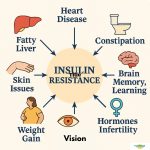
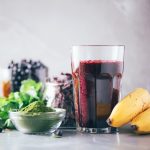
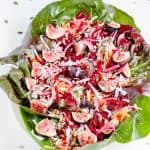

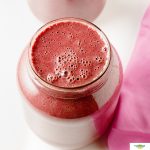

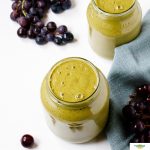






Comments
No Comments